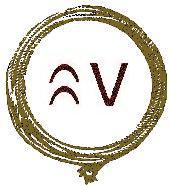Curly Horses in North America:
Is the Curly Horse a BREED?
OR is it Several Breeds?
Sterrin and Big Red; Crow Country Curly Horses
There is very little Morgan, Arabian, and likely no Missouri Foxtrotter genetics in this horse.
Curly Horse registries (for the most part over the years), have not/ do not comprehend the effect of limiting or supporting indiscriminate crossbreeding between old rare types & bloodlines of Curly Horses. This was understandable, because registries were not usually run by experienced geneticists or large breeders, and registry focus was rarely on the long term impact of indiscriminate breeding among diverse bloodlines or types.
In reality, many curly horse breeders are allergic to other breeds, and are therefore, understandably, relatively inexperienced with horses in general. Or, and just as impactful, Curly Horses have always been relatively rare compared to other mainstream breeds, so, most owners, who are not wealthy, could only afford to breed their curly mare to the closest curly stallion they could find, whether or not they knew the risks of breeding curly to curly, or whether they were experienced enough to recognize types or quality conformation, let alone were aware of the ramifications of crossbreeding types & bloodlines. This has led to the loss (mongrelization), or blending of most distinct lines of Curly Horses, over the past decades.
Functioning within these realities, there are some breeders that understand that separate bloodlines and types of Curly horses are just as much separate breeds as Appaloosas, Paint horses, and many modern horse breeds.
Some become preservation breeders, and struggle to preserve their favorite bloodlines (arguably, breeds) of Curly Horse.
So it the Curly Horse a breed? Ultimately, when considering all the facts, history and research, it is easy to argue that the Curly Horse is not one breed, but rather, several distinct breeds of horses, all of which share a dominant gene for a curly hair coat. Some are related, but have developed apart over the centuries. Some were never related until crossbred together. This realization may not always be a popular understanding. Registries, and understandably so, may not have always done their part to promote this awareness or provided much needed support for it in the past. Hopefully they will recognize curly bloodlines and type extinction issues happening today, and accept responsibility for historical bloodlines and types and their increased need for support, especially in the midst of so much research and increased genetic understanding about the different curl-causing mutations.
With advances in genetics and tests for traits in the equine genome, deeper understanding also advances. Dominant curly gene mutations have appeared over centuries and generations in various equine breeds world wide. That demonstrates how curliness does not indicate a breed, but rather, indicates breed development, and can lead to diverse curly breed selection.
|
published January 2020; author: Donna Grace
mailto:Heritage.Horse.Assn@gmail.com
